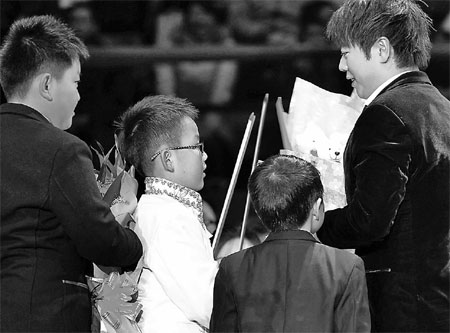Smaller concerts proved to be a big hit
Updated: 2013-07-01 08:02
By Zhang Kun in Shanghai (China Daily)
|
||||||||
|
A small-scale concert conducted by Chinese pianist Lang Lang (right) in Hefei, Anhui province. Small-size concerts and plays facilitate interactive communication between performers and audiences. Provided to China Daily |

Music market is diversifying as it attracts more sophisticated, dedicated audiences
All tickets to a debut China concert by former Guns N' Roses guitarist Slash sold out in three days last month. Scalpers doubled ticket prices to 3,000 yuan ($488.50).
People were still talking about the concert of Taiwan folk musician Kimbo (De-Fu) Hu at Shanghai Oriental Art Center weeks after his performance, wondering how unexpectedly successful and popular the 63-year-old alternative musician turned out to be.
"People in Shanghai are ready for some special music experiences that feel exclusive and tailor-made especially for them," Wu Liangyu, from Shining On Culture Co Ltd, a major show promoter in Shanghai, told China Daily.
Slash's sell-out gig took place at the Mixing Room and Muse, an 800-seat small hall at the Mercedes-Benz Arena complex. Shanghai Oriental Art Center's concert hall also has a small capacity of no more than 1,800 people.
These small-scale concerts - in contrast to mega shows at stadiums with more than 10,000 seats - have grown more popular with audiences in Shanghai over the past few years.
The Mixing Room held successful concerts in the past few months for Simple Plan from Canada and The Beach Boys from the United States. Upcoming on the venue's program are Coheed and Cambria, Owl City and Tony Bennett. About eight gigs from Western artists are on the agenda for this year, although the president of the Mercedes-Benz Arena, Michael Craig Enoch, declined to disclose the identities of all the artists.
"Nobody will be more than 30 meters away from the stage," Enoch said about the seating positions of the Mixing Room and Muse.
Even if you buy the lowest price ticket for a small concert, you will be closer to the performer than those who buy infield tickets for a large stadium, said Wang Yan, public relations officer for Mao Live House Shanghai.
"His sweat may splash on to the front row audiences. The atmosphere is intimate in here. You are close enough to touch him from the front row," Wang told China Daily.
Mao Live House can hold a maximum of 600 people. Kazutoshi Chiba, president of a music company called Bad News from Japan, opened Mao Live House first in Beijing and then in Shanghai in 2009.
Mao hosts three or four concerts every week. Most of the shows since 2011, when it moved to its present venue on Chongqing Road, Shanghai, are sell-outs. "First-tier artists do their shows in stadiums while alternative artists, such as indie and rock artists, tend to have successful shows with us," Wang told China Daily.
Small concerts are doing well because audiences are displaying a diverse taste for different kinds of music, according to veteran Shanghai music critic Sun Mengjin.
Only in recent years has China's music market started to diversify on a broad and more open scale into different categories. "In the past all you could hear was pop music. Now we have world music, folk ballads, jazz, country music and so on," Sun said. Different artists target different groups of audiences. "Young fans who follow Korean pop idols are not buying tickets to Hong Kong singer Allan Tan's shows and vice versa."
The popularity of live shows on satellite TV has helped to expose audiences to broader categories of music and cultivated a more diversified taste for music, Sun and Wang agreed.
The market is unavoidably becoming more and more divided and segmented, Sun said. Artists of each genre will take his or her slice of the pie. Sun is more than happy to see the phenomenon as evidence of a more colorful and enriched cultural life for people.
Only a few top notch entertainers - internationally famous and of great market appeal in China - are able to attract large number of audiences to fill an open stadium with more than 10,000 people.
"A few years ago, the artists that were well received in the Chinese market tended to be slightly outdated in the West," Wu, from Shining On Culture, said, adding that now the Chinese market is ready for more contemporary acts - Maroon 5 and Jason Mraz both did very well in Shanghai.
"Faye Wong can even have eight consecutive concerts at a large hall such as the Mercedes-Benz Arena but there is only one Faye in China," said Sun, the music critic. "Large hall performances can put lots of pressure on the artist."
It may cost 50,000 yuan less to rent for one night a medium-size venue such as Shanghai International Gymnasium with 4,000 seats than a larger indoor stadium that can hold up to 9,000 people.
"It takes deep understanding of the market to decide how many tickets are likely to be sold for each artist's show," Wu said.
The concert organizer may want to try a larger venue in the hope of selling more tickets but if the box office sales don't turn out satisfactorily, it will significantly affect the artist's marketing value and reputation in the long run.
"It looks pathetic if one sings to a half-empty hall," Wu said. If this happens, "he or she may not be able to tour in China again".
Usually a concert contractor can cover his costs when 60 percent of the tickets are sold, the rest being profit. Successful as small concerts are, they are not generating very high profits simply because they are small and there are only a few tickets for sale, Wu said.
Mercedes-Benz Arena has made extensive efforts to introduce Western artists to perform at its Mixing Room and Muse because it wants to develop a reputation as the best place to see shows.
The new complex on the eastern bank of Huangpu River opened as the Mercedes-Benz Arena after the World Expo 2010 in Shanghai. It also has a cinema, skating rink and restaurants in addition to the main show venue that has 18,000 seats and the Mixing Room.
"We have closely studied Weibo and WeChat in order to understand the market," said Enoch, who has decades of experience working in the music industry in the United States and who has been in China for eight months. "We want to bring foreign shows people don't usually get to see here," he told China Daily. "It's about educating the audience too."
Rather than doing business on a show-by-show basis, Enoch considers these small concerts as part of a puzzle that will come together to form a bigger picture. Money has not been the primary business goal - at least yet.
The Mixing Room and Muse is a joint venture between Mercedes-Benz Arena and Muse, a leading clubhouse company in Shanghai. Hennessy VSOP, the Cognac brand, is also a sponsor. These initiatives have helped to share the cost of shows and provide more fun for concert-goers, such as the holding of pre-show parties.
zhangkun@chinadaily.com.cn
(China Daily USA07/01/2013 page16)
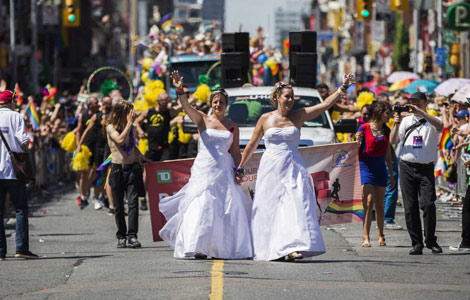
 Gay pride parade around the world
Gay pride parade around the world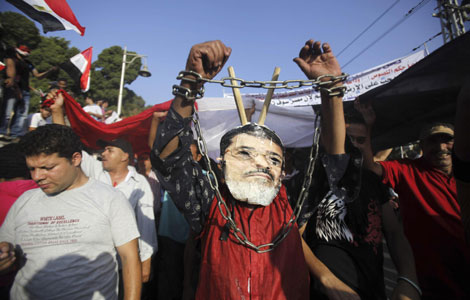
 Four dead in Egypt clashes, scores wounded
Four dead in Egypt clashes, scores wounded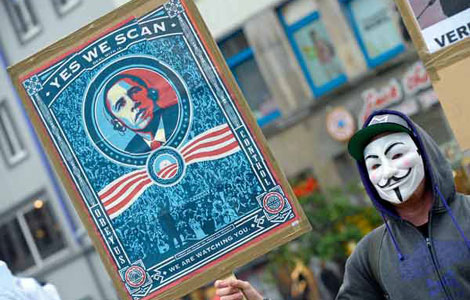
 New NSA spying allegations rile European allies
New NSA spying allegations rile European allies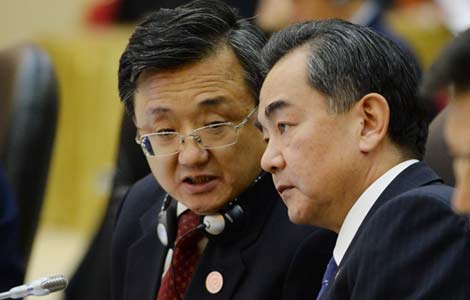
 Foreign minister makes ASEAN debut as tensions flare
Foreign minister makes ASEAN debut as tensions flare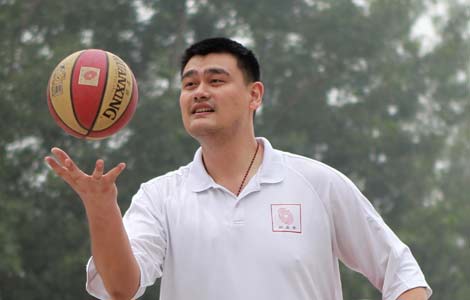
 Yao stresses transparency in charity
Yao stresses transparency in charity
 NYC's gay pride march for celebration
NYC's gay pride march for celebration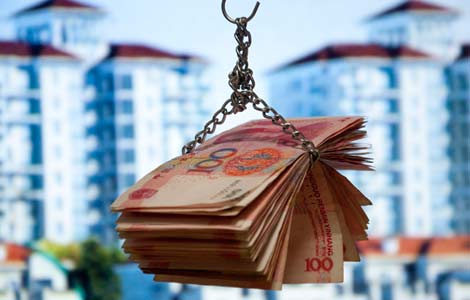
 Massive debt plagues local gov't
Massive debt plagues local gov't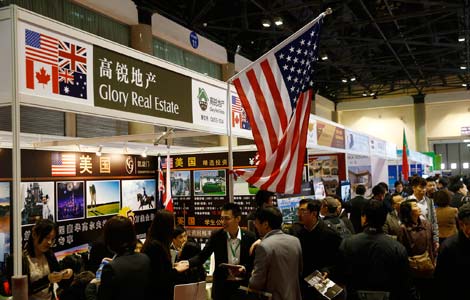
 Looking abroad for better investment
Looking abroad for better investment
Most Viewed
Editor's Picks

|

|

|

|

|

|
Today's Top News
Chinese, US deals will grow this year
US updates duties on Chinese honey
Looking abroad for better investment
Mixed outlook for EV makers in China and US
Obama to announce new power initiative for Africa
China's June manufacturing PMI falls to 50.1
Longer term for visas to attract talent
Putin signs anti-gay measures into law
US Weekly

|

|
